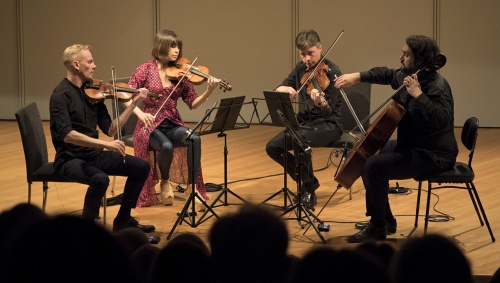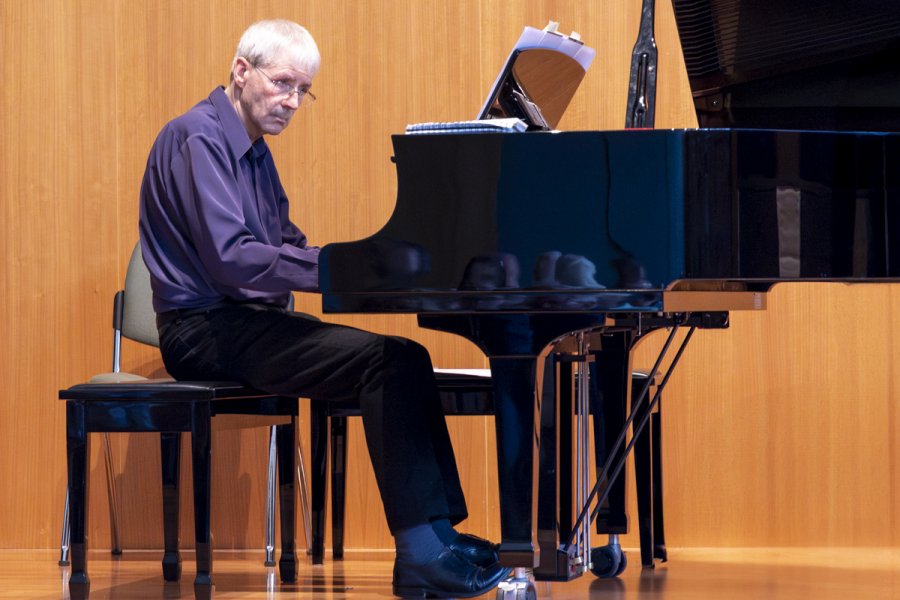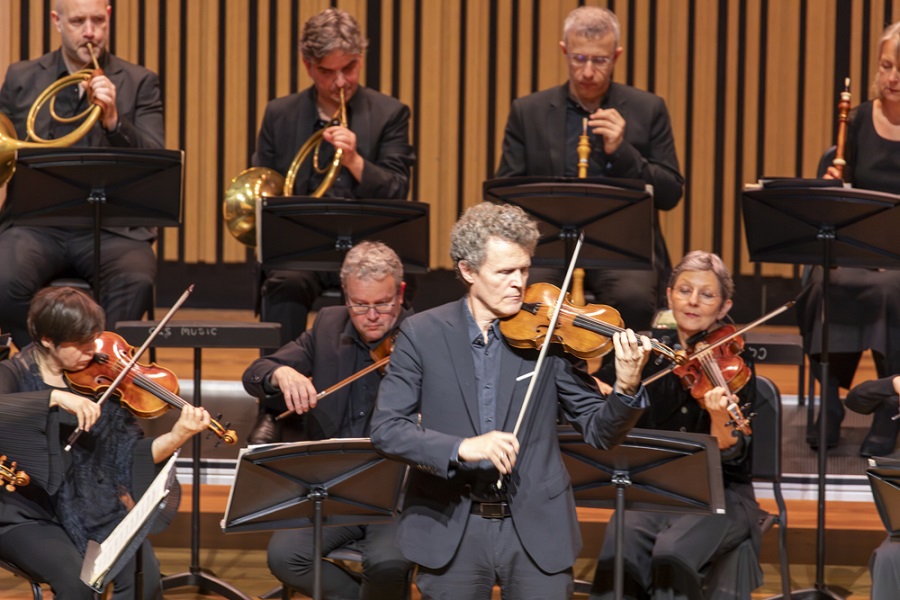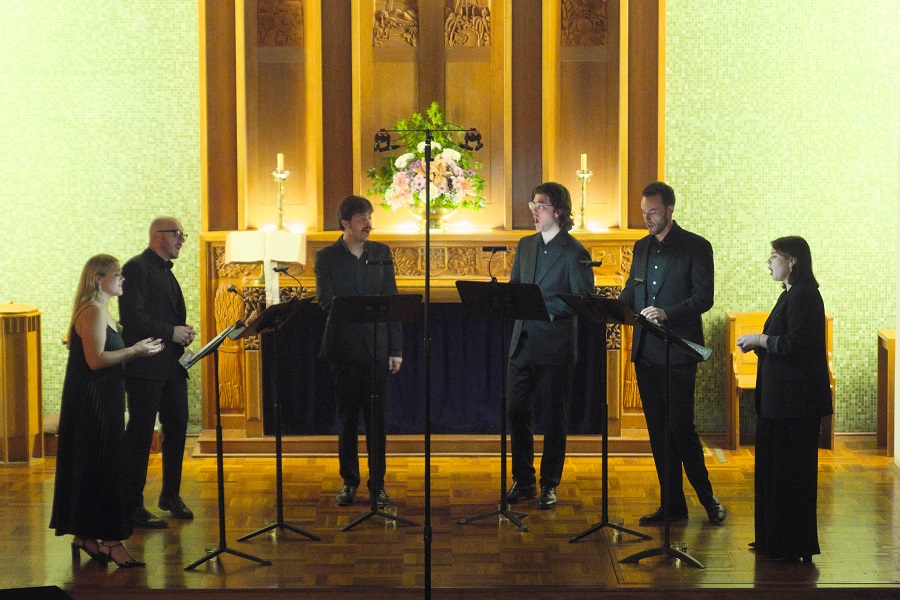
This was the Australian String Quartet’s third and final national tour for the year, again mixing two familiar works with one new and challenging. The quartet’s regular cellist Sharon Gregorian, currently on parental leave, was replaced by Blair Harris for this tour. He was able to use the 1743 Guadagnini cello which is part of the matching set of Guadagnini instruments on permanent loan to the quartet.
The concert opened with Franz Schubert’s String Quartet no 13 in A minor “Rosamund” written toward the end of Schubert’s life in 1824, although only 27 years old when it was written. It is a work full of attractive melodies, many reworked from previous compositions, given to the first violin. All finely played although the viola did seem a little subdued at times.
The second work was their experimental bit, String Quartet no 2, by WA composer James Ledger. The instruments were fitted with microphones and the signal from those digitised and manipulated in real time by sound engineer Adele Conlin. This involved looping various sections, and then replaying with a delay or playing the sounds backward amongst other effects.
It was unclear how much of this was improvised by Conlin, had been specified by Ledger or worked out through rehearsal by a combination of everyone involved. Some of the manipulations were quite effective, but putting a delay on a squeak or a farty sound does not hide that it is still a squeak or a farty sound. It is an interesting idea that did not fully embrace what looping technologies can do as a compositional tool.
The concert finished with the Shostakovich String Quartet no 10 in A flat written in 1964. All four instruments used a mute on the bridges for the first, third and last movements. This compresses and limits the sound of each instrument and allowed a greater dynamic contrast for the unrestrained second movement, where the instruments were overdriven with a noticeable distortion of the tone. As the Schubert started quietly, the Shostakovich ended the same way, with an exquisitely timed final few notes.
Who can be trusted?
In a world of spin and confusion, there’s never been a more important time to support independent journalism in Canberra.
If you trust our work online and want to enforce the power of independent voices, I invite you to make a small contribution.
Every dollar of support is invested back into our journalism to help keep citynews.com.au strong and free.
Thank you,
Ian Meikle, editor








Leave a Reply